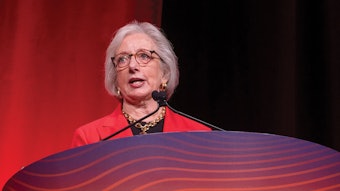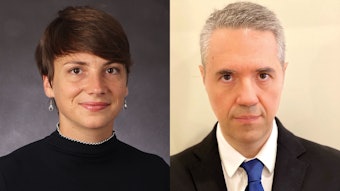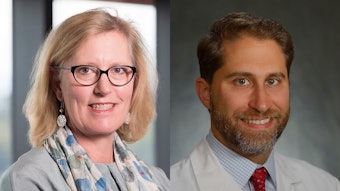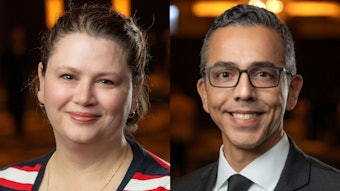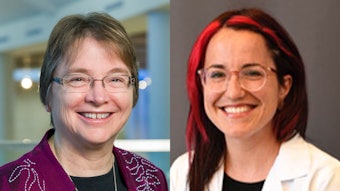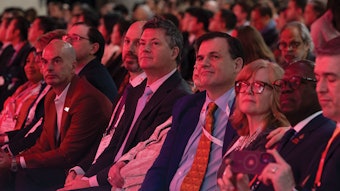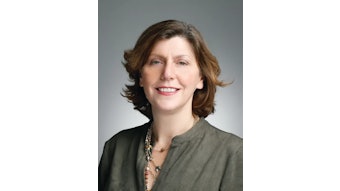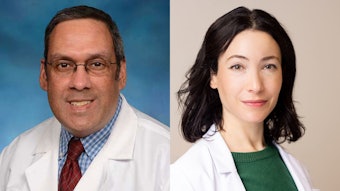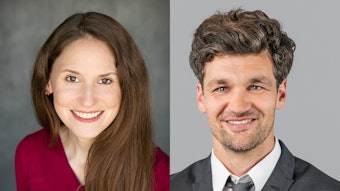HEADS-UP | Putting words into action
Clinicians will explore actionable ways to reduce inequities in stroke care as well as outcomes in this Feb. 6 HEADS-UP pre-con.

Turning talk into action. That’s the subject of the 2024 ISC pre-conference symposium 2024 HEADS-UP | Health Equity and Actionable Disparities in Stroke: Understanding and Problem-Solving.
HEADS-UP is a collaborative initiative with the American Stroke Association (ASA) and the National Institutes for Neurological Disorders and Stroke (NINDS). The day-long scientific forum includes recognized experts in equity in stroke care, research and policy who will share actionable areas for change and advancing this work for measurable changes in health disparities, according to symposium chair Amytis Towfighi, MD, professor of neurology at the University of Southern California’s Keck School of Medicine in Los Angeles and co-chair Janet A. Prvu Bettger, ScD, FAHA, adjunct faculty at Duke University.
“Individuals from minoritized populations with cerebrovascular disease face similar inequities to those with other conditions (e.g., poor access to care, inferior quality care, worse outcomes),” Dr. Towfighi said. “However, they have the additional barriers associated with disability. These barriers include access to speech, physical and occupational therapy, medical equipment, support services and the potential for increased societal inequities that can limit their opportunities to accessible housing, employment and transportation.”
The symposium will begin with a global perspective on advancing stroke policy, including a presentation by the incoming World Stroke Organization president and a thought-provoking set of presentations on measuring stroke care to inform policy in addressing health disparities. Those presentations include featured guest speakers from NINDS and global stroke experts. Attendees also will have the opportunity to access poster and oral presentations by early career faculty that showcase new work in this area.
A career development focus during the symposium session will provide junior investigators with advice from seasoned experts on careers in health equity science.
The session is expected to inspire clinicians at every career stage to make a difference. At the practice level, for example, Dr. Bettger said there are numerous ways in which individuals can make a difference.
“Strategies include monitoring processes and outcomes and developing interventions to address inequities, determining why inequities exist in particular settings, being mindful of how implicit bias may impact decision making and assessing for unmet social needs to suggest targeted public and private community-based resources to support recovery and better health,” Dr. Bettger said. “We hope attendees will leave with renewed energy to address key areas using the lessons and examples shared by our speakers.”
The session also will feature a plenary lecture in honor of the late Edgar Kenton, MD, which is awarded to an outstanding researcher selected by the HEADS-UP Program Committee with a solid track record of studying or addressing stroke disparities. Dr. Kenton was an eminent Black stroke neurologist who served as a professor of neurology at Temple University, Thomas Jefferson University Hospital, and Morehouse School of Medicine (where he directed the Stroke Prevention Intervention Research Program). He held numerous leadership positions, including chair of the AHA Stroke Council, a past member of the National Advisory Neurological Disorders and Stroke Council and as a past member of the American Academy of Neurology Board of Directors.
“Dr. Kenton was passionate about bridging race/ethnic inequities in stroke and was an exemplary role model for many individuals from backgrounds that are underrepresented in medicine,” Dr. Towfighi said. “The symposium aligns with his work addressing race/ethnic inequities as well as his dedication to mentoring junior faculty from underrepresented backgrounds, to become the future generation of experts addressing inequities.”
The HEADS-UP symposium was the brainchild of Bruce Ovbiagele, MD, MSc, MAS, MBA, MLS, a respected vascular neurologist and professor of neurology at the University of California San Francisco, who served as the conference chair for the past four years and secured funding from NINDS. Bruce Ovbiagele
Bruce Ovbiagele
“Dr. Ovbiagele has dedicated his career to delineating and addressing inequities in stroke prevalence, care and outcomes as well as creating career development opportunities for individuals who are underrepresented in medicine,” Dr. Towfighi said. “The goals of the annual symposium are to leverage knowledge dissemination channels and partnerships to expose research gaps, highlight promising work, foster surveillance, inform policy makers, recognize achievement, and inspire greater interest among post-doctoral scholars/junior faculty to pursue careers in the field of stroke disparities and thereby catalyzing the development and successful implementation of interventions aimed at bridging these stroke disparities.”
A separate registration is required to attend the Pre-Conference Symposia.


